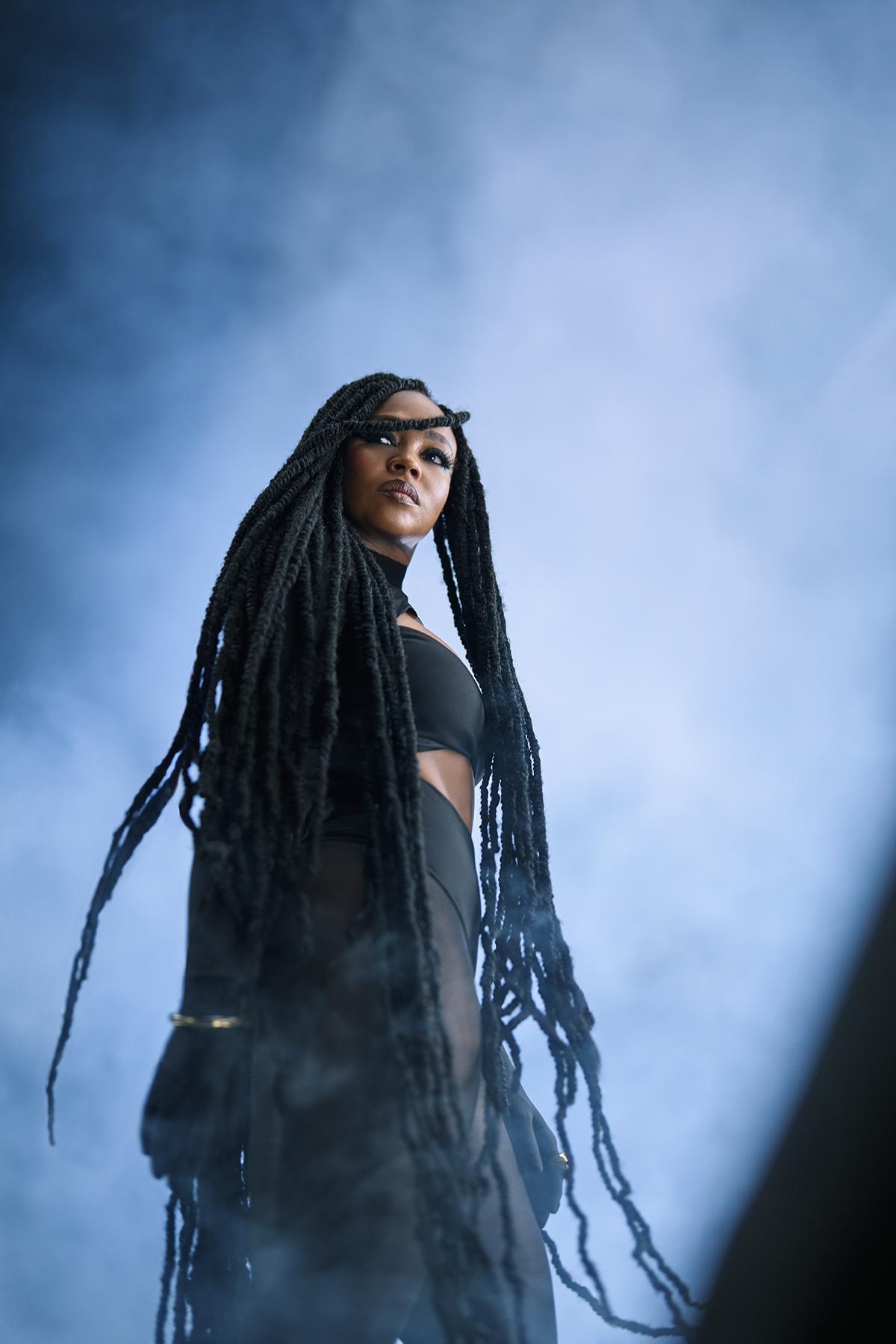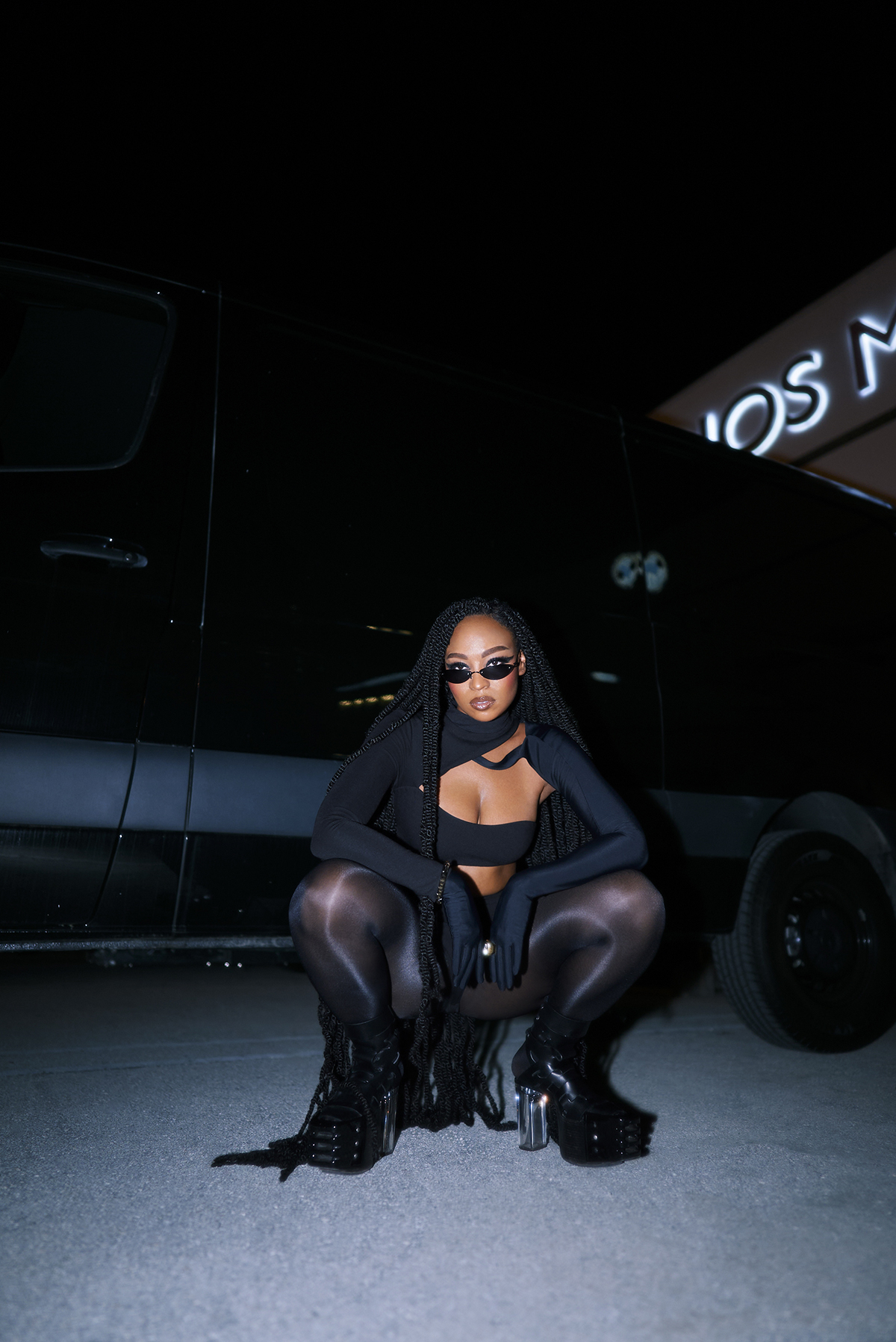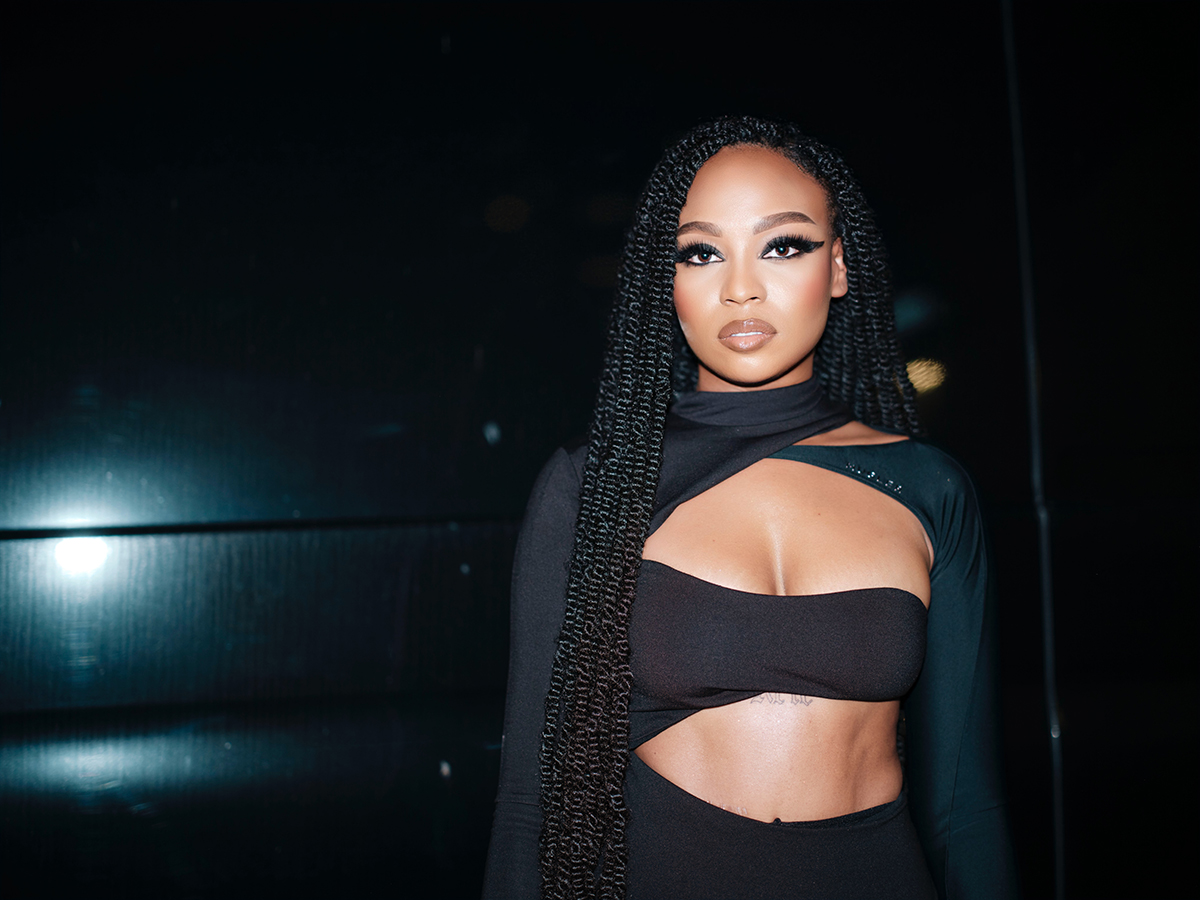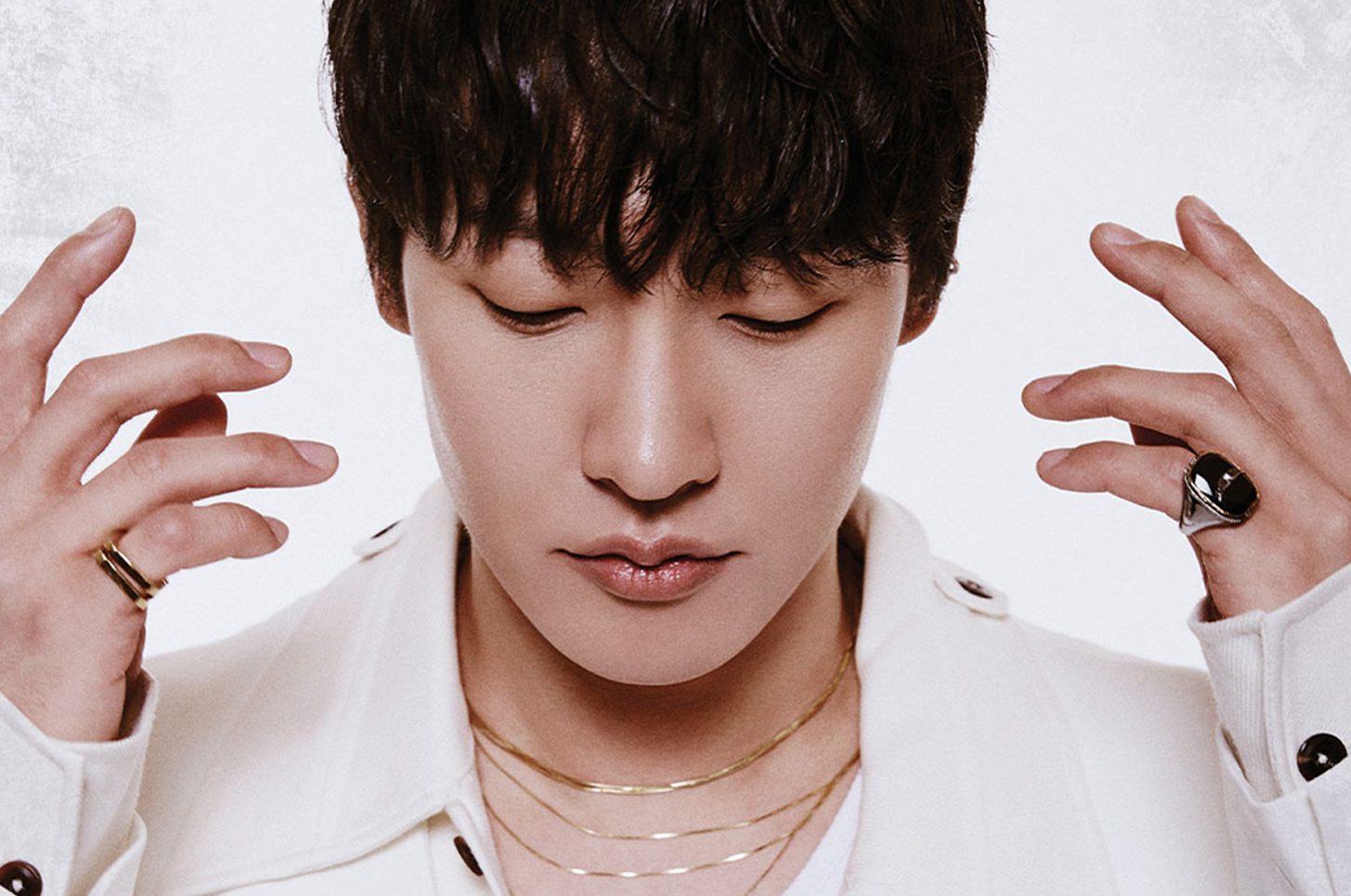“We recapitulated its history”, La Pantera “spoke to us: about tumbao, Victoria's secret and good bilateral relations between cultures”
Colombian by origin, Goyo, ”La Pantera”, connected exclusively to Rolling Stone Korea.
Talented world-renowned singer, who for more than 20 years has been producing musical hits with her parent group “Chocquibtown”. Goyo today ventures into this stage as a soloist, doing it in style, with his first album on the way and participating in a Hollywood production documentary film.
ChocQuibTown, Becky G - Que Me Baile (Official Video)
Her worldwide achievements are many among which stand out: collaborations with globally positioned artists Will Smith, Becky G, Marshmello, Carlos Vives, Kany García, Grammy Awards and a host of international recognitions, among others. She will tell us about these in this exclusive.
For Latin America and Colombia, Goyo represents the elevation of musical talent, rescuing and promoting folklore that dignifies the Latin historical heritage through his musical works rich in Afro-descendant cultural representations of the world.
Let us delve, then, into the magic of “La Pantera” that arrives with its “Tumbao”
1. [RSK] Making music for around 20 years with her parent group Chocquibtown, Goyo brings Latinidad through the representation of art typical of Afro-descendant culture. How was this trajectory built that positioned the group as an icon and an expression of Afro-descendant culture in Colombia with worldwide success?
Well, for me it is really important. I had previously worked with Richard Blair, a British producer who recorded our folk legend “Toto la Momposina”. She opened a call looking for a rapper and I was chosen. This made us known internationally and made us open up to the world and focus on building that bridge to show where Chocó was. We felt that we did not have enough representation in the media, therefore, we materialized it by giving it the name chocquibtown, which means: Chocó, Quibdó and town, the town, showing that pride, that desire to represent the area where we come from. I think that's something very typical of hip hop. Rap has been, for us, that part of hip hop that strengthens our autonomy and focuses us on the path forward. We set out to be committed to representing that area where we originate from. We had seen this with 2pac, talking about Los Angeles, Jay Z and all these rappers who inspire us.
We started in Cali-Colombia, capital of the Colombian Pacific coast, where this rap movement was strongest, which gave us the vision of having something to contribute and we wanted to imbue it with that spirit that lived there. There we made “Somos Pacifico,” a song that broke into streaming. We put it on free download and we couldn't believe it, more than 40 thousand downloads in a week. Voice-to-word popularized us, first, in Bogotá, the capital of Colombia, where the locals could not cope. From there we expanded to the United States, Europe and Mexico. Later, we released a second album: “Oro”, in which the single stands out: “De donde vengo yo”, which represents Colombianness. It was nice to have this song and this album that finished ranking when we were nominated for a Grammy, which we won.
One of the greatest experiences I have had with Chocquibtown is that solidarity, that support and that affection from the people. We were not seeking to be a representation, but rather to make our origin known. It was a super nice process. Chocquibtown is my mother house, it taught me to find that artistic character of what Goyo is by giving me that possibility to express myself and support myself, even as a woman.

2. [RSK] How has the process of building a solo career been, what would you highlight among the challenges and achievements, what inspires GOYO?
Truth is from the beginning in Chocquib', we always went as a collective work team. Rap was always guiding us and giving us that structure. We have always been fans of the squad type organizations,as The Fugees with Lauryn Hill and we saw that each one had their own character. So, within our dreams as a group, we knew that we also aspire to be individual artists. It was something that we put off because the success of Chocquibtown didn't give us time for anything. We had more than 100 shows a year and we went to many countries and cities. It was during the Pandemic when we began to think about making our artistic life as soloists, although I already had collaborations with international artists like Kany García from Puerto Rico, who invited me to their projects and I had not yet had the time to sit down and think, what I meant as Goyo, In solo career, I discovered what Gloria wanted say .
On the other hand, I had the opportunity to film a documentary on HBO, called “Letra de Oro” directed by Simón Brand. A project that helped me be in a studio, alone, with the outline of the songs that had inspired me. So, I did “pa’ que se lo gozen” by Tego Calderón. I made the iconic song by maestro Joe Arroyo that was highly representative of Afro-Colombian culture in the world called “Otra Noche.” I also had the opportunity to collaborate and work with my mother. I wrote a song with her and also i supported on production, another path with many possibilities. From there to now it has been like that, being in a studio, working with different producers, sitting down to write my own lyrics and collaborating with many composers.
Was in 2023 - 2024 where I began to show this side of a soloist with this album of golden lyrics. From there, I found myself preparing my first solo album called "LA PANTERA". I still don't have an exact release date but it will be released this year, from which the first single that comes out is "Tumbao".
Tumbao is a track I released at the end of 2023 and it has brought me many positive things. Furthermore, it was created in the midst of my participation in the Victoria's Secret documentary film “The Tour”, where I performed in front of Naomi Campbell, Gigi Hadid, Winnie Harlow, Imaan Hammam, Adriana Lima and other great figures. representatives of this brand.
Goyo - Tumbao (Official Video)
“Tumbao becomes representative song of Victoria's Secret and my image is broadcast in the official trailer of the documentary broadcast on prime video.”
VICTORIA’S SECRET: THE TOUR ’23 – Official Trailer | Prime Video

3. [RSK] South Korea is a country that stands out for the dedication of mothers and the care they take in passing on their traditions to the next generations. You also agree and connect with these family values. Please tell us how you have balanced motherhood with development of a successful career?
It's a matter of time. When you have clear priorities, the importance of being present in the growth and education of a child, we have to make an effort in the same way, I make an effort to release a song, to get an idea of nothing, or go day and night to the studio. Is so important to spend time with our children. My daughter, Saba, is a very alert girl who loves music and, in the midst of everything, she taught me many things and demands time because she is very loving and very attached to me. Perceive and live the matriarchy that we have built in which my mother is a fundamental part. She is always present, she lives with us and it is something that, in our Latin American culture, we are very clear about. In the role of mothers, we have to work hard, we include our children in our lives. In fact. Saba goes to concerts, sometimes she accompanies me on trips and wherever I have to go for work and I like that. I think it allows her to better understand what I do and I think that, that way, she can understand all the efforts and investment in time that I give as a mother. We greatly value our time together.

4. [RSK] Music as a universal language has meeting points in all cultures of the world, taking into account this premise, tell us what you know about the Korean and Asian music scene in general, what point of view do you have, any artist or artists with whom are you tempted do any collaboration or maybe plans to visit Asia?
I have seen several groups of artists, like "Black Pink" girls, I think it's cool because they have an incredible ability to have their own sound and do things that are competitive. However, the only, quote-unquote, barrier would be the language. The melodies are super bearable and I love art, Asian art comics and one of my dreams is to visit Asia. I would be totally open to working with the music that I identify with.
“Obviously multicultural issues are part of my DNA, I believe it is the only way that, as a culture, we could make real exchanges by sharing and collaborating.”

5. [RSK] Ok, finally let's talk about tumbao, how this work is going, cultural, social and racial inclusion messages, how we explain the meaning of the concept of tumbao to the Asian public?
I wanted to find that balance. A song that knows how to express a lot and evoke emotions of all kinds, but with rhythm. Time's up, it's a dark song. Tumbao, for me, is the power that we all have, and when one finds that power, then it can be said and felt. That's how I made the decision to write very forceful lyrics,
"And what's my fault?"
That my talent is art
And I do not accept debate
for my people i would die"
I would die for what I do and for what I live. It is a song where people are also invited to find their own "Tumbao" and feel able to say “there is no one like me” because we are unique, we are unique, We all have our own power.
6. [RSK] Finally please send us a greeting for Korean and all Asian audiences.
I would love to tell you there is a giant Afro-Latin community, where women have been part of the growth of culture, not only from home education, but also in the cultural and artistic part. I come from where the group comes from . "NICHE", one of the most representative Salsa orchestras of a rhythm that is known in the world today and recognized in musical history. I come from Chocó where they come from and I hope we can share and I hope this article is a platform to know and learn about our cultures. For me it would be an honor and a pride to be able to share a little of South Korean culture with my followers. I have deep respect for you and your way of preserving your culture which, like our Afro-Latin culture, requires being remembered and perpetuated in the memory of our ancestors and new generations. We and you share a culture where knowledge is transmitted through oral tradition and at this point we are cultures that meet.

Photographs by Felipe Jaramillo









